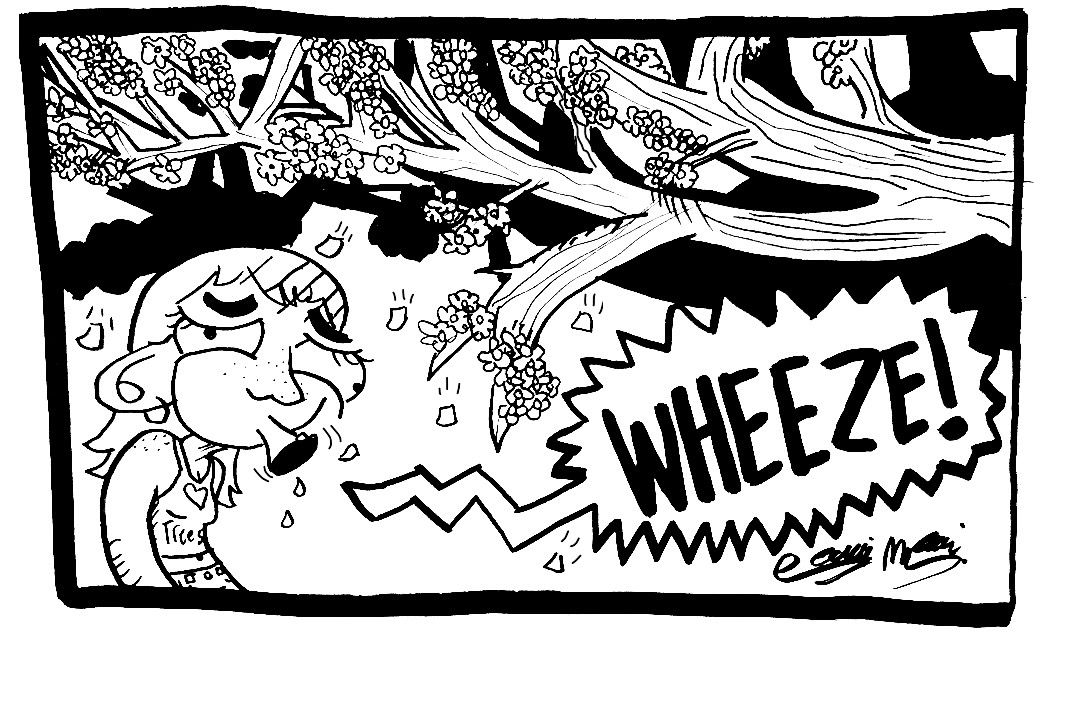Leading up to my freshman year at GW, I was so convinced I knew everything. People would ask me if I was scared or nervous about starting college and the answer was always “no” because I thought that my 18-year-old self was fully prepared to move all the way across the country and live alone. That all changed within my first month here – I came down with the flu, realized I didn’t know how to do about a million everyday activities, failed my first test and felt the most homesick and empty loneliness I’ve ever experienced in my life. Coupled with intense academic pressure, these past few months seemed pretty impossible at times.
That sense of emptiness and confusion is a familiar feeling for many freshmen. The transition to college can often take a toll on the mental and physical health of students navigating the new emotions and experiences that come with a new environment. To addresses the heightened academic pressures that coincide with these freshman year adjustments, GW offers the Academic Forgiveness Policy, which allows undergraduates to repeat three courses in which they received a D+ or lower. But a similarly beneficial pass/no pass system for juniors and seniors in the Columbian College of Arts and Sciences stops far too short of freshmen across the University. To prioritize students’ mental health during their first year of college, GW should expand the pass/no pass option to freshmen for their first semester so they can spend more time enjoying the university where they are trying so desperately to succeed.
After one semester, enough time has passed for freshmen to adjust to their new lifestyle and tackle their academics in a healthy and sustainable manner. But there is no denying that the first semester of college can be jarring and emotionally turbulent for most students. Freshmen are often experiencing independent life for the first time, which can be a huge adjustment socially and academically. While this transition is exciting and essential for personal growth and maturity, it is also emotionally taxing. Homesickness is incredibly real, especially for students like myself who would need to pay the high price of a six-hour flight that you can’t just buy on a whim. Starting college is even harder for introverted students who struggle to meet people, make friends and cultivate a whole new support system. Taking grades out of the equation for a short period of time will allow students to fully adjust to their surroundings before being thrown back into the endless cycle of chasing an A and obsessing over GPA.
When I’ve spoken to my peers about their experience balancing school and adjusting to their new life in D.C., they all agreed with that the constant academic pressure we face makes the transition undoubtedly harder. Academic pressure is healthy until it interferes with mental and physical health. Learning to take care of ourselves, whether by eating nutritious meals, exercising or finding time to socialize and experience life beyond the walls of Gelman Library is difficult to prioritize.
Students will need need to apply substantial effort to learn and retain information in classes that they take as a pass/no pass, even without the pressure of perfecting the letter grade. The parameters for a pass still require students to demonstrate a level of understanding that shows that they have attended class, retained content and turned in assignments. The letter grade is what forces more of the pressure-cooker environment that students are facing right now, creating an unhealthy relationship in which students place more value in a class score than actually learning. Grading breakdowns create a complex in which students feel pressure to reach higher and to score above a 90 percent. While a passing grade may be a 70 percent, students have been conditioned to want to do better and score higher, creating a culture in which a 70 doesn’t quite cut it anymore. The pass/no pass option takes away that dynamic, temporarily relieving students of the academic pressure to reach 100 percent every single time.
Some people may disagree with the pass/no pass system and argue that grades provide an incentive for students to work and learn, but research actually shows that the use of letter grades and point systems only exacerbate the harmful narrative that grades mean everything. Instead, a pass/no pass system derails the focus on grading and brings it back to what school exists for – learning. Grades do not always motivate students in the healthiest ways because it often leaves them to focusing on academic validation rather than personal education benefits when grades are part of the equation, according to Susan D. Blum, an anthropology professor at the University of Notre Dame. Freshmen should establish their own healthy lives to harness the energy and passion to succeed in the classroom.
It is simply unrealistic to expect a student to perform at their best in such an unfamiliar environment with so many uncertain variables in their life. Many of us attend GW for its high-quality academics, but college is also a time for personal growth and maturing. Students should have the chance to take a break from academic pressure for a semester, make new friends and take the time to learn about themselves in this new environment. GW should transition classes to a pass/no pass grading system for the first semester of freshman year to demonstrate to students that officials care about students’ mental and physical health while balancing change in their lives with a college transition.
Anaya Bhatt, a freshman majoring in political communications, is an opinions writer.


